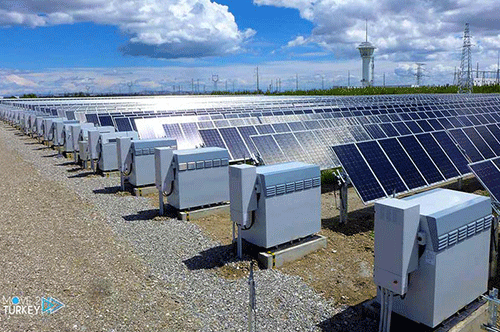Huawei recently demonstrated its commitment to Africa’s energy transition, while also showcasing the full range of its latest solar PV and green home and business solutions. The demonstration took place at the Solar Power Africa Conference held in Cape Town at the beginning of February.
In his keynote address at the conference Xia Hesheng, president of Huawei Digital Power Sub-Saharan Africa region pointed out that “Carbon Neutrality” has become a global consensus. Low carbonisation, digitalisation and intelligence will definitely be a deterministic trend in the next 30 or 40 years. However, digitalisation and intelligence are all supported by computing power that consumes a huge amount of electricity, which is now driving the urgency for the development of clean energy. Solar as the main renewable energy, driven by three key factors; low carbon, digitalisation and intelligence, is growing rapidly. Renewable energy will, therefore, become the main energy resource.
Xia expanded that Africa urgently needs solar energy to address its energy shortage challenges. “Worsening load shedding and rising energy costs are seriously impacting our lives, productivity, and ability to engage meaningfully in economic activity,” he said.
“Huawei believes that what it calls ‘4T’ Technologies, will drive the development of Africa’s renewable energy: watT, heaT, baTtery and biT. Over its 25 years of operating in Sub Saharan Africa, Huawei has a deep understanding of the region’s energy and technology requirements. We are committed to utilise Huawei’s digital power energy technologies to build a better Africa and bring clean energy to more people, families, and organisations,” continued Xia.
Huawei called on every organisation to take action to transform from energy consumers to energy producers.
Xia illustrated how Huawei itself is doing so, using two examples from its work in South Africa. The first is Huawei’s Johannesburg campus, where all 18 buildings and parking garages are covered with solar panels, supporting a solar system which provides 1500KWh/day. Another example, is the Waterkloof Winery in Cape Town, where Huawei has worked with a local partner, to provide a clean energy solution. A cluster of solar panels on the winery’s roof generates 1100KWh/day of green electricity to the winery.
“We are happy to see that more enterprises, organisations, and families are actively taking action to change from pure energy consumers to energy producers. We want to use this occasion to call on more stakeholders to join us in this great transformation. Let’s use our abundant natural resource, sunshine, to address today’s energy challenges, and in so doing, contribute to a carbon neutral future,” concluded Xia.



